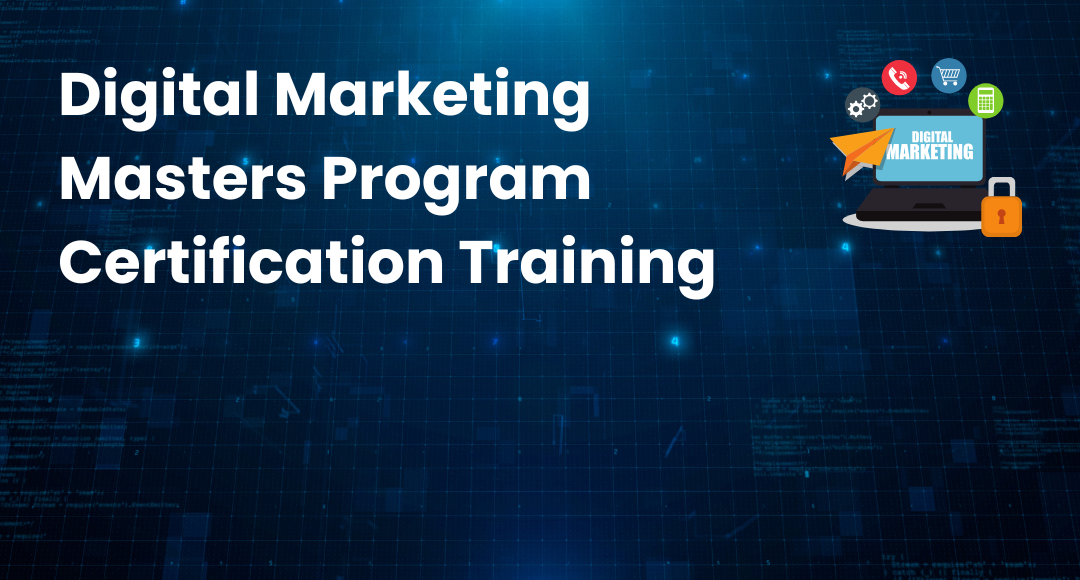What is Digital Leadership? A Brief Guide
-
 By Sushmith
By Sushmith
- Published on Aug 25 2025

Digital Leadership Overview
The strategic application of data, AI, and technology to promote innovation, improve productivity, and help push business growth is known as digital leadership. To keep up with the market factors and long-term achievements, leaders need to adjust to new technologies.
According to McKinsey & Company, businesses with strong digital and AI capabilities create shareholder returns that are two to six times higher than those of their competitors.
Wanting to turn vision into measurable business success requires accepting digital leadership.
Table of Contents
Digital Leadership: What Is It?
In this currently evolving age of digital marketing and digital businesses, it is now more important for an organization to have a digital leader. Although the term "Digital Leader" is relatively new, the responsibilities have always been within the company under different jobs.
Now, what is Digital Leadership? To make sure that the team is proceeding in the right direction in terms of digital networking and marketing, organizations hire digital leaders to perform such tasks.
Digital Leadership is the method or the ability used in a business to design an organized workflow that can keep up with the current trends in the digital world. It embodies strong digital transformation leadership that helps organizations navigate change and innovate continuously.
The sole objective of a digital leader is to help organizations and businesses deliver quality customer service and maintain healthy customer relationships. This also deals with managing and leading the team through digital channels and reflects essential digital leadership skills.
A digital leader must master social media marketing, website design, email marketing, and other key digital channels to keep up with all the latest trends and adapt to the changes taking place in the digital world, demonstrating excellent digital marketing leadership.
To adopt this cultural shift, any organization must prioritize connecting with customers to interact and develop the delivery of quality service. By doing so, organizations can digitalize their entire work environment and focus on implementing and improving service quality—A hallmark of digital transformation for leaders who excel in leadership in the digital age.
Principles of Digital Leadership
Digitalization of a business is a very ideal plan for any enterprise nowadays. This is because the current world has completely transformed into the digital world. Taking the first step to get into digitalizing a business would be to understand the principles of applying digital leadership to a business, which are also essential for effective digital transformation leadership.

The objective of digital leadership is to design the organization, help it adapt to the digital culture, and alter its characteristics to digitalize and help globalize the business. These principles also align with digital transformation for leaders who must strategically guide teams in leadership in the digital age.
The following principles will clarify the objectives of digital leadership skills needed for success:
- Agility is one of the most crucial characteristics of digitalization. It is very important for leaders to adapt to the speed of change happening in the digital world.
Since everything that takes place in the digital world tends to change its characteristics very rapidly, leaders with strong digital leadership skills can analyze competitors and implement diverse strategies for success.
Organizations collaborate without a glitch demonstrate effective digital marketing leadership, showing how adaptability fuels success in digital businesses.
- Insight, as a leadership quality, is a must-have to become a good leader. Having insights, solving complex problems, and understanding the digital space are vital in leadership in the digital age.
Hiring a leader with insightful knowledge about the digital world and with industrial experience about growing a business, aids the organizations implement social media marketing strategies, brand marketing strategies, and brand management planning.
- Influence means to change people’s perspective towards one’s own perspective or to the company's perspective. By understanding the qualities and characteristics that the company lacks, digital leaders help organizations bridge the gap by influencing the digital market on behalf of the organization.
To influence is to change the current aspect of the company from the customer’s point of view. Influencing people’s opinions is a must-have quality for any organization.
- Authenticity is more critical than any other aspect of a company’s brand. A digital leader must have the audacity to follow their passion and take on the company's responsibilities as their own.
Having authenticity means being genius, and being genius means getting a hold on every aspect of a company and implementing a way to overcome any issue. It is also necessary to have leadership qualities in order to gain the trust of others, not just the employees but also the customers.
- Innovation is the key to leading a team of professionals. In a team, people can work together, but they can never work on the same idea unless they are guided to do so. A leader must simplify things and clarify the point of doing so. This helps the team share a single objective and work toward the same.
Now that said, what makes Digital Leadership important for a business?
Why is Digital Leadership Important?
Looking at the growth of an organization, it is very crucial to collect revenue and strategically market the company branding. Having a digital leader aids the organization in increasing the revenue by reaching out to more people.
In the process of digitalizing a business, digital transformation leadership plays a more crucial role than any other role in the organization. By acting as a bridge between employees and company management, leaders can create and adapt company responsibilities and characteristics to suit the demands of a fully digital environment.
We can create and change company responsibilities and characteristics as needed for digitalization by creating a mediating source for employees and the company management group.
Organizations intending to make this cultural transition must put customer engagement and the development of high-quality service delivery first. This is a hallmark of effective leadership in the digital age, where businesses can digitalize every part of their workplace and focus on implementing and improving service quality.
Businesses can then digitalize every part of their workplace and focus on implementing and improving service quality.
Leaders who master digital marketing leadership can particularly leverage these tools to boost brand recognition and outreach. Since the world is now completely digitalized, it is more important than ever to transform an organization.
Doing business on the cloud now not only helps provide additional security to business data but also aids in staying updated in real-time and allows storing enormous amounts of user data and utilizing it to the business' advantage.
Digitalizing a business would not only deal with digitalizing the documentation but also takes responsibilities to digitalize the business activities. To enable a quality experience for customers, a digital leader studies and understands the company completely and helps in designing an environment that fosters employee excellence.
As a result, digital leadership is identified as a valuable asset for a digitalizing company.
How to Develop Digital Leadership Skills
To thrive in today's digital-first world, cultivating digital leadership skills is essential. The ability to leverage technology, drive innovation, and lead teams in a digital environment defines successful leaders. Here are key steps to develop these skills effectively.
1. Stay Updated with Digital Trends
The digital landscape evolves rapidly. A strong practitioner of digital transformation leadership must stay informed about emerging technologies, market shifts, and evolving customer behaviors.
A digital leader must stay informed about emerging technologies, market shifts, and evolving customer behaviors. Regularly reading industry reports, following thought leaders, and enrolling in digital transformation for leaders courses can help.
2. Enhance Communication and Collaboration
Leadership in the digital age requires mastering both verbal and written communication to effectively convey their vision. Leveraging digital collaboration tools such as Slack, Microsoft Teams, and Zoom fosters seamless teamwork and enhances productivity, which is also vital in digital marketing leadership.
3. Embrace Data-Driven Decision Making
In the digital age, data is a key driver of strategic decisions. A strong digital leader understands analytics, interprets key performance indicators (KPIs), and utilizes insights to make informed decisions that align with business goals–an essential aspect of digital transformation for leaders.
4. Cultivate Adaptability and Agility
The ability to adapt quickly to change is a hallmark of great leadership in the digital age. Being open to innovation, experimenting with new technologies, and leading teams through transformation ensures continued growth in a dynamic environment.
5. Develop a Strong Digital Presence
Establishing credibility in the digital space is crucial. Digital marketing leadership plays an active role on professional platforms like LinkedIn, contributing to thought leadership, and leverage social media to connect with industry professionals and their target audience.
By focusing on these areas, aspiring professionals can develop the skills needed to lead in a digital world, ensuring their organizations remain competitive and innovative.
5 Digital Leadership Skills You Need to Succeed
Mastering digital leadership skills requires a combination of technical knowledge, strategic vision, and interpersonal skills. Here are five essential skills every digital leader must possess:

1. Visionary Thinking
A successful practitioner of digital transformation leadership has a clear vision of how technology can drive business success. They anticipate future trends, align them with business strategies, and inspire teams to work towards shared goals, that are the hallmarks of leadership in the digital age.
2. Technological Proficiency
While digital transformation for leaders does not require them to be an IT expert, they must understand the fundamental technologies shaping their industry. This includes cloud computing, AI, automation, and cybersecurity, enabling them to make informed technology-related decisions essential for digital marketing leadership in tech-driven markets.
3. Customer-Centric Mindset
Understanding customer needs and behaviors is critical. Digital leaders skilled in digital marketing leadership leverage customer data and insights to create personalized experiences, enhance engagement, and improve service delivery, ensuring customer satisfaction remains a top priority in leadership in the digital age.
"In the insurance industry, using customer data responsibly to improve service delivery is essential for building trust," explains Ian Beevis, Co-founder of Clean Green Compare.
4. Resilience and Problem-Solving
Digital transformation presents various challenges, from technical failures to resistance to change. Effective digital leaders remain resilient, proactively solve problems, and guide their teams through disruptions with confidence–demonstrating the adaptability required for digital transformation leadership.
5. Effective Change Management
Driving digital transformation for leaders requires the ability to manage change effectively. Digital leaders ensure smooth transitions by fostering a culture of innovation, providing proper training, and addressing concerns to minimize resistance while strengthening digital leadership skills across the organization.
By honing these skills, professionals can enhance their digital leadership skills, drive innovation, and position themselves as forward-thinking leadership in the digital age.
To understand more clearly the roles and responsibilities of a digital leader in digital marketing to help your business rank on top,
Enroll now to Sprintzeal’s Digital Marketing Master’s Program. Do visit Sprintzeal’s all courses page and explore more courses that suit your preferences. You can also subscribe to our newsletters for the latest insights. Reach out to us for more course details.
What Makes you a Digital Leader?
Being a digital leader is not only about helping the company digitalize; it is also about inspiring the employees to follow the vision that is set by the company. A digital leader also must be ready to learn and adapt to things that constantly change in the digital world.
A digital leader must understand a company's strengths and weaknesses and conduct analyses in order to provide sufficient technical knowledge to the organization. This helps the entire organization stay on track.
A digital leader also takes on the responsibility of leading the transformation, focusing on the technological advancements. Since the trends in technology change quickly, being able to stay updated with the changes puts you at an advantage against your competitors.
Other characteristics of digital leadership include responding to inquiries and resolving complaints. No one will ever be persuaded that a significant transition is a good idea. People need to see evidence that your suggestions are sound and that you value their input and thoughts.
Conclusion
The process or skill employed in a company to develop a well-organized workflow that can keep up with the most recent developments in the digital world is known as "digital leadership."
Designing the organization, assisting it in adjusting to the digital culture, and changing its characteristics are all goals of digital leadership.
A digital leader must also involve motivating the workforce to adopt the corporate vision.
In order to provide the business with adequate technological expertise, a digital leader must conduct analyses and comprehend a company's strengths and weaknesses.
A digital leader is also in charge of guiding the shift and concentrating on technology improvements.
To understand more clearly the roles and responsibilities of a digital leader in digital marketing to help your business rank on top,
Enroll now to Sprintzeal’s Digital Marketing Master’s Program. Do visit Sprintzeal’s all courses page and explore more courses that suit your preferences. You can also subscribe to our newsletters for the latest insights. Reach out to us for more course details.
Frequently Asked Questions (FAQs)
What is digital leadership?
Digital leadership is the ability to leverage digital tools, technologies, and strategies to drive business success, foster innovation, and lead teams effectively in a digital-driven world. It involves guiding organizations through digital transformation while ensuring productivity and growth.
What are the 7 pillars of digital leadership?
The 7 pillars of digital leadership typically include:
- Vision and strategy
- Technological adaptability
- Data-driven decision-making
- Digital literacy and expertise
- Innovation and creativity
- Effective communication and collaboration
- Change management and resilience
These pillars help organizations navigate the complexities of the digital landscape while fostering sustainable growth.
Why is a digital leader important?
A digital leader plays a crucial role in driving digital transformation, ensuring business agility, and keeping an organization competitive in the evolving digital landscape. They facilitate innovation, optimize operations, and create strategies that enhance customer experiences while preparing teams for future technological advancements.
Popular Programs
Trending Posts
Email Marketing for Beginners - Tips, Tools and Advantages
Last updated on Nov 25 2025
18 Best Digital Marketing Certificates in 2026
Last updated on Feb 13 2026
Translating Certifications into Resume Keywords Recruiters Actually Search For
Last updated on Aug 26 2025
From SEO to GEO: How Marketing Courses Are Redefining Core Skills
Last updated on Jan 29 2026
Crafting an Effective Social Media Strategy
Last updated on Apr 5 2024
IKEA Marketing Strategy - An Inspiring Finding from the Case Studies
Last updated on Dec 16 2025
Categories
- Other 75
- Agile Management 49
- Cloud Computing 58
- Project Management 175
- Data Science 69
- Business Management 88
- Digital Marketing 87
- IT Service Management 36
- Programming Language 61
- AI and Machine Learning 91
- IT Security 113
- Quality Management 78
- IT Hardware and Networking 27
- Microsoft Program 5
- Workplace Skill Building 15
- Risk Management 9
- Information Security 8
- Leadership and Management 9
- Corporate Training and Development 1
Trending Now
Top Google Chrome Extensions for Online Marketers in 2026
ebook11 Most Common Misconceptions About SEO in 2026
ebookGuide to Banner Advertising for Google Ad Sense and Other Ad Networks
ebookBrand Managers Guide For 2026
ebookDigital Marketing – Benefits, Types, Certifications and Jobs
ebookLatest Digital Marketing Manager Interview Questions and Answers 2026
ebookTop SEO Topics and Concepts – Role of SEO, Google, and AI with SEO
ebookDigital Marketer Interview Questions and Answers 2026
ebookFundamentals of Digital Marketing: A Roadmap to Become a Pro
ebookBest Digital Marketing Books for 2026
ebookOn Page SEO Guide
ArticleDigital Marketing Plan - How to Create and Execute it
ebookBrand Marketing Strategy Guide
ArticleYouTube Marketing Guide 2026
ebookCareer in Digital Marketing - A Complete Guide
ebookSEO Optimization Tips for 2026
ebookCareer in Advertising - The Beginner's Guide
ebookAffiliate Marketing - A Comprehensive Guide for Beginners
ebookCPA Marketing Guide 2026
ebookSearch Engine Marketing - A Guide for Beginners
ebookTop Digital Marketing Tools 2026
ebookThe future of Digital Marketing
ebookConversational Marketing - The Ultimate Guide 2026
ebookCoca Cola Marketing Strategy - A Case Study
ebookTesla Marketing Strategy: Key Lessons to Learn
ebookDigital Marketing Challenges & Solutions in 2026
ebookSEO in Digital Marketing - How Does It Work?
ebookHow to Create a Social Media Marketing Strategy
ebookEmail Marketing for Beginners - Tips, Tools and Advantages
ebookColors for Marketing: Psychology of Colors for Your Brand
ebookLinkedIn B2B Marketing Guide
ebookWhat is PERT? How to use PERT in Project Management?
ebookA Beginners guide to LinkedIn Marketing in 2026
ebookTraditional Marketing vs Digital Marketing: How to Choose?
ebookTypes of Infographics - When and How to Use
ebookDigital Economy - What is it and why is it important
ebookDigital Marketing Tips for 2026
ebookOnline branding - Examples & Strategies
ebookAmazon Marketing Strategy – A Brief Guide
ebookNetflix Marketing Strategy- An Overview on Marketing Tactics of Netflix
ebookIKEA Marketing Strategy - An Inspiring Finding from the Case Studies
ebookNike Marketing Strategy 2026 - 7 Effective Findings from Case Studies
ebookDiscover Starbucks Marketing Strategy: The Success Secret
ebookMcDonalds Marketing Strategy: Inspiring Findings from a Case Study
ebookWhat is Online Networking? How Can It Benefit Your Career Success?
ebookMicrosoft’s Market Success Strategy: A Case Study
ArticleCareer Opportunities in Digital Marketing - A Complete Guide
ArticleSocial Media Marketing Fundamentals for Business Growth
ebookCrafting an Effective Social Media Strategy
ArticleRed Bull's Extreme Marketing Strategies: Gives You Wings
ArticlePepsi Marketing Strategies: Battle of the Colas
ArticleBMW’s Marketing Strategy: Beyond a Lifestyle Brand
ebookContent Optimization Strategies for Digital Marketing Success
ArticleThe ABC's of Communication for Marketers & Advertisers
Article5 Steps to a Privacy-Centric SaaS Marketing Strategy
ArticleHow to Boost Your Marketing Efforts: 5 Advertisement Ideas
ArticleWhat Makes the Best Email Marketing Platform for 2026?
Article7 Critical Go-To-Market Strategy Mistakes to Avoid in 2026
ArticleHow to Choose the Best Marketing Automation Tool for Your Needs
ArticleResearch on the Marketing Strategies of Famous Brands
Article6 Cold Email Tools Tailored for Tech Startups
ArticleHow SaaS Companies Can Build a High-Performing Marketing Team
ArticleWhy More Students Are Choosing to Study Digital Media (Even If They Don’t Always Know What to Call It)
Article10 Best Ways to Use Reviews in Your Social Media Ads in 2026
ArticleEffective interpersonal communication for shaping your workplace skills
ArticleHustle Smarter, Not Harder: How Your Social Network Can Boost Your Income
ArticleTranslating Certifications into Resume Keywords Recruiters Actually Search For
ArticleTop 5 Best Perplexity SEO Experts to Scale Your Visibility
Article5 Best AI SEO Agencies to Dominate Search and AI Overviews
ArticleEssential Social Media Marketing Interview Questions (2026)
ArticleTop Content Writer Interview Questions and Answers to Ace Your Next Job
ArticleWhen You Need an MSP – How to Tell Your Marketing Needs Backup
ArticleGenerate Template-Based Clips Using an AI Video Maker Effortlessly
ArticleDigital Marketing for Local Businesses: Tips to Get More Customers
ArticleDigital Marketing Job Description: Responsibilities and Skills
ArticleSEO Strategies That Actually Work in 2026
ArticleSocial Media Marketing Strategy to Watch in 2026
ArticleSocialWick vs. SocialGreg: A 7-Day Instagram Quality Test
ArticleMastering Google Analytics: A Comprehensive Beginner's Roadmap
ArticleBest Software for SEO: Top Tools to Boost Your Rankings in 2026
ArticleBest 7 Visitor Management Systems With Real-Time Host Notifications
ArticleBest Email Marketing Software for Startups
ArticleFrom SEO to GEO: How Marketing Courses Are Redefining Core Skills
ArticleTop 10 Website Design Agencies In Bangalore [Latest]
Article10 Reasons why Mobile Marketing Matters
Article18 Best Digital Marketing Certificates in 2026
Article







